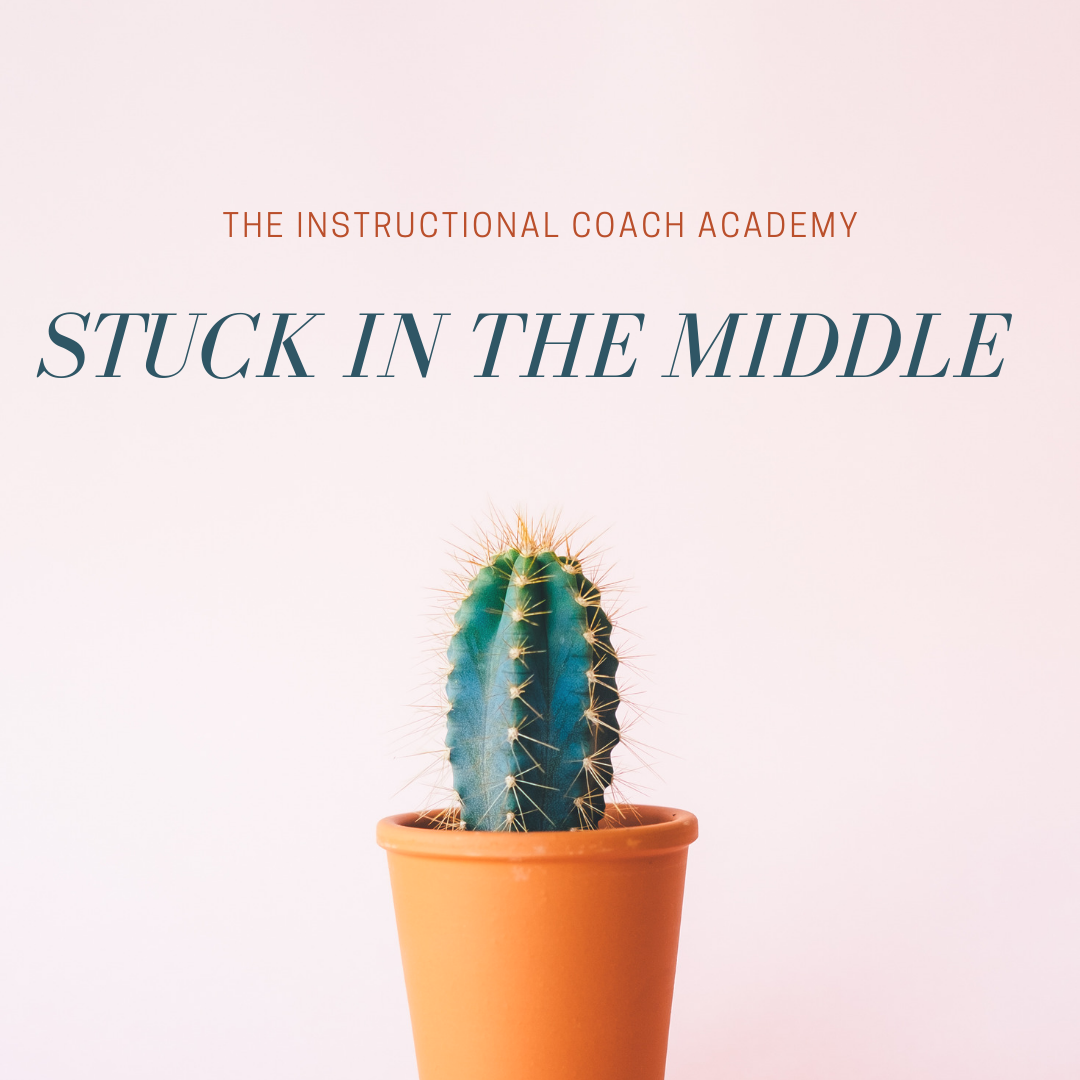Sometimes I feel stuck in the middle of…well, everyone. Not only am I navigating and sometimes mediating relationships among teachers, I also wind up third party to student-teacher, counselor-teacher, or administrator-teacher interactions.
Let me be clear: I do not take sides and I do not state an opinion. I listen, paraphrase, emphasize and look for potential paths forward. My focus is on student benefit. Sometimes, I have to remind myself that stress among faculty, and stressed out faculty, both negatively impacts students. My job requires me to be a patient listener. The ‘white hat’ so to speak.
Often, I feel boxed in by all the “peopley” needs
The flip side
These are real and constant tensions. For the most part, those questions are a positive. If teachers didn’t trust and respect me, they wouldn’t seek my support. If I weren’t visible and approachable, students wouldn’t seek me out. The cultural positives of common lunch, outweigh the need for a referee. My lens has to be on why I am front and center in every potential conflict rather than how on annoying or petty they seem.
The most troubling and delicate situations, though, are the legitimate concerns brought to my attention. When these concerns are instructional, I am equipped with the tools to handle difficult conversations. Managing personalities is also something I feel is a strength.
But I am nervous about the legitimate critiques of administrators. My job isn’t to coach principals. No one told me I would have to advocate for different groups without alienating anyone else. I believe most administrators are well and truly stuck in the middle of everything. So, they get defensive or dismissive easily.
I have to remind myself I have worked hard to create positive relationships with them too. Generally, they respond positively to honest, helpful feedback. I am a teacher advocate. If I support principals, I support teachers too. I can be the bridge by thoughtfully sharing concerns.
An example:
Over the course of a week, I observed and worked closely with five teachers. Three teachers mentioned missing supplies. All three stated that they had already requested the items. The missing items will enhance instruction. What do I do?
I could have approached the administrator and pretended I am not fully aware of how supply ordering works. This makes me uncomfortable. My reputation as knowledgeable precedes me. Maybe I could have encouraged teachers to follow up. Though I hate to promote a “squeaky wheels get the grease” mentality or create unnecessary tension. The third option is the most intimidating: I could have brought the issue to the administrator’s attention.
I both did and did not do all of those things.
Teachers should be willing and able to speak with their supervisors. In this case, I know the relationships are positive enough to withstand such a minor issue. Therefore, I reminded teachers to ask, appropriately and professionally, about their orders.
Despite my hesitation, I heard about this from enough people to warrant my intervention. I feel somewhat intimidated by approaching administrators. Nonetheless, I felt a pattern emerging that needed to be disrupted. So I decided to include this issue in my weekly meeting.
In addition, I opted to play a little dumb. Or at least, to approach bringing up this problem as casually as possible. First, I gathered a few more details. Second, I left this discussion to the end of my meeting. I didn’t want to derail the positive trends we had to review. Finally, I reflected on how to craft my statement. I needed to get the message across without judgement. I also needed to stay out of it–to not take sides.
To my surprise, it worked. At least, I think it did. As I packed up to leave, I said, “By the way, a couple people mentioned they are missing supplies. How can I help with that?” He surprised me by saying the supplies have arrived. He just hasn’t gotten around to distributing them. Hopefully, my reminder will help him prioritize putting those items in teachers hands.
Lessons and Questions
I might be nervous over nothing in these situations. On the other hand, I am learning to honor my feelings. In doing so, I become more reflective. I can stay positive and feel less stuck in the middle when I am self-aware.
Changing my point of view also helped me recognize the compliment I am getting when people confide in me. I am slowly becoming more confident. Moreover, I am intentionally building strong relationships.
I still have questions. How can I better manage my time? In the long run, how can I reduce conflict among teachers? What steps will help strengthen a culture of respect? How do I advocate for everyone? Who coaches me? When will I feel like I know what I am doing?
Maybe the last question was somewhat hyperbolic. Maybe. I hate feeling like I am stuck in the middle. And I love being in the middle of everything. I am focused on adjusting the ‘stuck’ part and I hope will continue to improve.

![[Instructional Coach Chronicles] Working With a Teacher You Don’t Like](https://theinstructionalcoachacademy.com/wp-content/uploads/2018/04/the-instructional-760x400.png)
